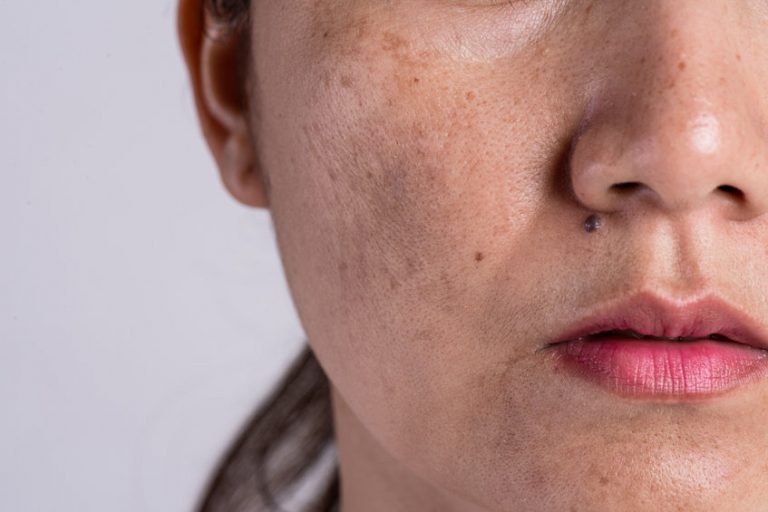
There are many potential causes of dark spots or hyperpigmentation. These can range from dreaded skin cancer melanomas to hormonal conditions like melasma or even inflammatory conditions such as acne. The easiest way to prevent all types of dark spots is to use a high-quality sunscreen that contains zinc oxide or titanium dioxide with a minimum SPF 30.
Melasma is an estrogen-derived form of hyperpigmentation affecting sun-exposed areas of the face. It is often called ‘the mask of pregnancy.’ Treatment for melasma often includes sun protection, prescription strength Vitamin A, low potency steroids, and prescription strength bleaching creams.
Acne-derived hyperpigmentation requires treatment of the underlying acne first and foremost to prevent new dark spots from forming. Chemical peels, laser resurfacing and bleaching creams may be recommended in more resistant cases.
Skin cancer melanomas or pigmented basal cells can also present themselves as dark spots. Dr. Claiborne uses dermoscopy, the latest technique in dermatology, to best identify whether a dark spot is potentially cancerous. If you suspect a dark spot may be cancerous, it is best to schedule an appointment immediately to have it looked at by an experienced board-certified dermatologist. Routine skin cancer screenings are also recommended if you know you have a history of skin cancer in your family.
